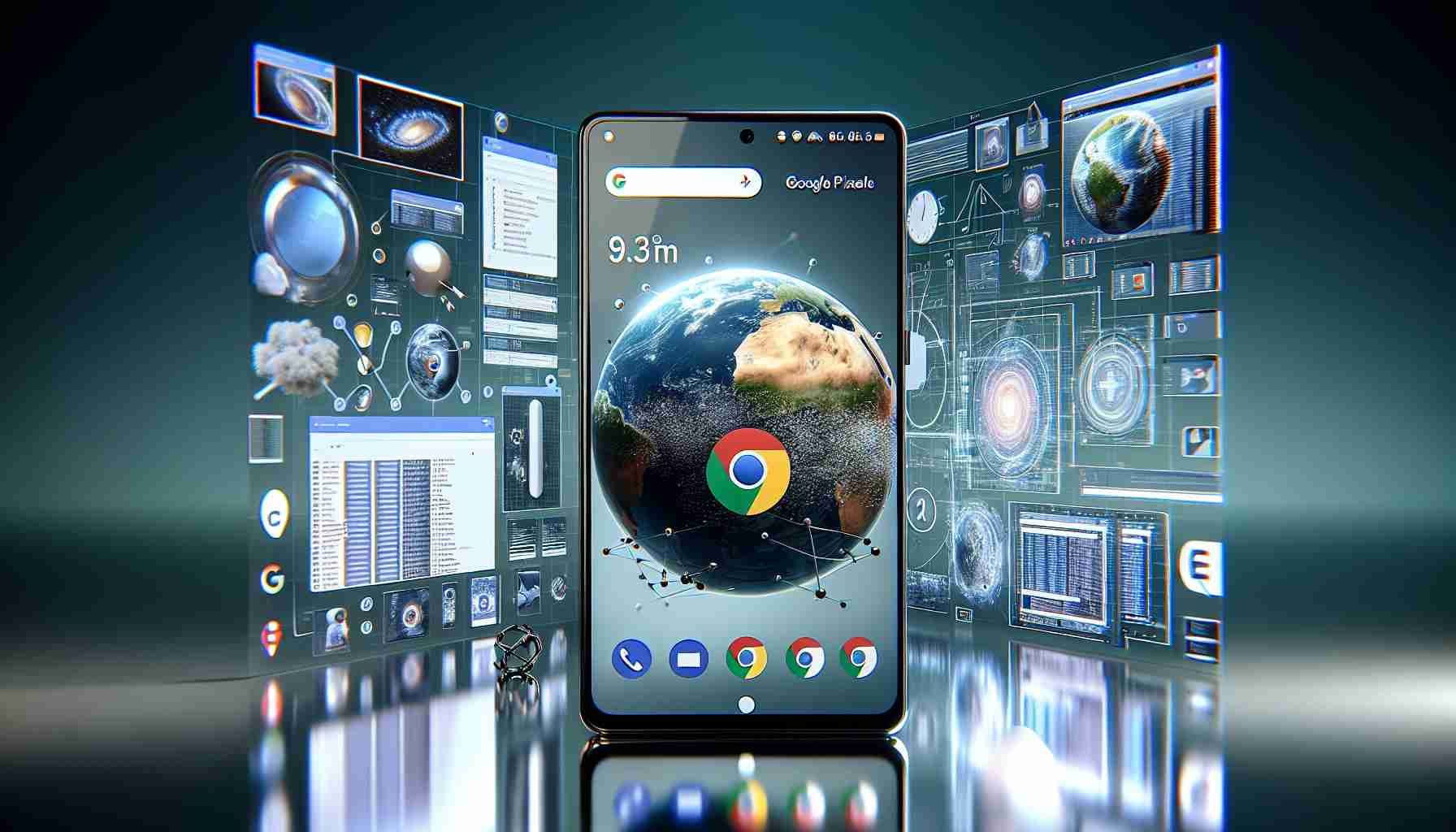Google Pixel Devices Explore Chrome OS Potential
It was recently revealed that Google has been experimenting with running Chromium OS, the open-source version of Chrome OS, on their Pixel line of devices. This exploration, part of the Ferrochrome project, sought to understand the blending of Android and Chrome OS functionalities within Google hardware.
As discussions circulated over the potential launch of Chrome OS on Google’s Pixel 8, it became apparent that these speculations were a bit premature. Google stepped forward to clarify that the demonstration of Chromium OS operating in a virtual environment on Pixel hardware was indeed a proof of concept designed to examine the capabilities of the Android Virtualization Framework (AVF). This technical demonstration aimed to identify the challenges that might accompany such an integration.
Dave Burke, Google’s Vice President, during an Android-centric podcast, clarified that the integration of Chrome OS showcased on Pixel was a mere technical demonstration aimed at elucidating the possibilities of virtualization in the Android ecosphere. He emphasized the demo’s primary goal was not to announce a new product but to explore the virtualization technology’s potential.
The tech demonstration did serve a meaningful purpose beyond stoking curiosity, as it teased what future Android virtualization might entail. However, despite the optimism generated among the tech community and Chrome OS enthusiasts, Google remains non-committal about the prospects of this particular project evolving into a consumer feature, leaving the future of Chrome OS expansion in the balance.
Key Questions and Answers:
What is the Ferrochrome project?
The Ferrochrome project is an exploratory initiative by Google that involves testing Chromium OS (the open-source counterpart of Chrome OS) on Pixel devices. The project focuses on understanding the integration and functioning of Android and Chrome OS within Google’s hardware ecosystem.
Why did Google test Chromium OS on Pixel devices?
Testing Chromium OS on Pixel devices aimed to examine the capabilities of the Android Virtualization Framework (AVF) and to explore the possibilities of running different operating systems in a virtualized environment on top of Android.
Is Google planning to release Pixel devices with Chrome OS?
As of the information available by the knowledge cutoff date, Google has not committed to releasing Pixel devices with Chrome OS. The company clarified that the recent testing was purely a technical demonstration of virtualization technology’s potential, not an indication of a new product launch.
Key Challenges and Controversies:
Technical Challenges:
Integrating Chromium OS with Pixel devices poses several technical challenges, including ensuring performance efficiency, seamless user experience, and hardware compatibility.
Product Strategy:
Google’s decision to explore or forego the integration could have significant implications for the company’s product strategy, potentially affecting the future of the Pixel line-up and Chrome OS’s presence in the market.
Customer Perception:
There is a risk of confusing customers with a mixed message on Google’s commitment to merging Android and Chrome OS, particularly if projects like Ferrochrome raise expectations that are not met.
Advantages and Disadvantages:
Advantages:
– Potential for enhanced productivity with a multi-OS environment.
– Access to a broader range of apps and extensions from both Android and Chrome OS ecosystems.
– Improved utilization of hardware capabilities through virtualization.
Disadvantages:
– Possible system overhead leading to performance concerns.
– User complexity can increase with two different operating systems.
– Resources may be split between supporting separate OS platforms, slowing innovation and updates.
Related Links:
For more information on Google’s various projects and technologies, you may visit the following links:
– For information on Google Pixel devices, visit Google Store.
– To learn more about Chrome OS, Chromium OS, and related open-source projects, visit Chromium Project.
– For updates on Android development and the Android Virtualization Framework, visit Android Developers.
Availability of links and the information they contain were verified as of the last update and might have changed since.
